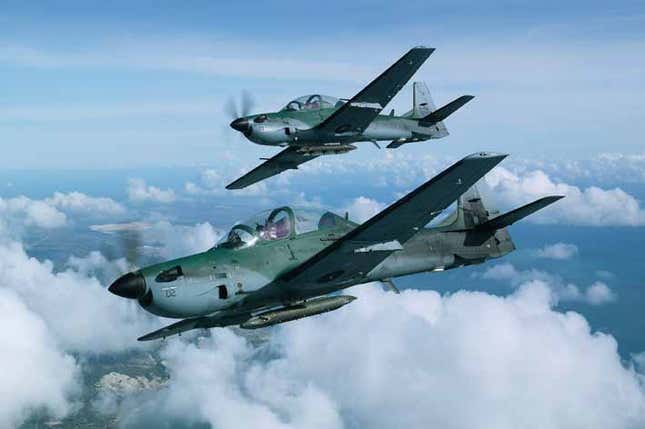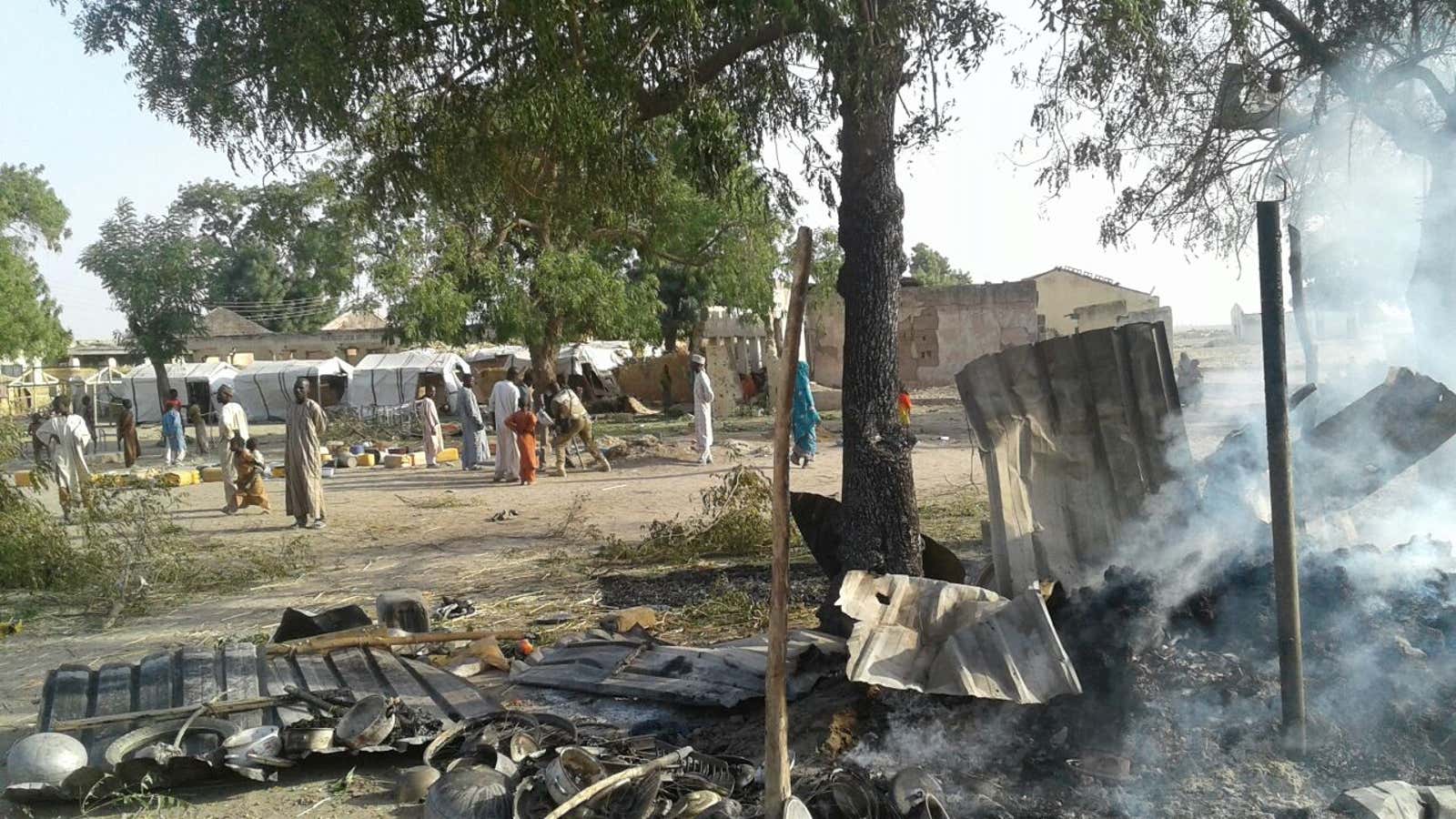For a cool $600 million, Nigeria may become the proud owner of 12 Embraer A-29 Super Tucanos, light attack aircrafts equipped with “wing-mounted machine guns, weapons integration with advanced surveillance… precision-guided bombs, and even air-to-air missiles.”
Nigeria has been trying to acquire the aircraft since 2015; last year the sale nearly went through under the Obama Administration, until the accidental bombing of a displaced persons camp by the Nigerian Air Force resurfaced concerns about Nigeria’s human rights record and the agreement fell through.
The Trump Administration, however, does not seem to share the previous administration’s concerns—and has the congressional support necessary to ratify the deal. Senator Bob Corker, the chairman of the Senate Foreign Relations Committee stated plainly ”We need to deal with human rights issues, but not on weapons sales.”
Even though Embraer is originally Brazilian, the planes are manufactured in the United States which means they require US approval for sale to foreign countries.
This new deal has been justified as necessary for Nigeria’s fight against Boko Haram, the Salafi-Jihadist insurgency that has claimed more than 30,000 lives and displaced more than 2.5 million people. However, the sale of the “Super-T’s” is financially irresponsible, operationally and tactically unnecessary, and may actually undermine the counter-terrorism campaign if improperly deployed.
The cost of the twelve planes is expected to constitute half of the annual defense budget of Nigeria. This at a time when the country’s economy is struggling to climb out of a recession, it is already struggling to pay the salaries of soldiers on the frontlines, and there is a significant funding gap for the humanitarian programs in the country’s war-torn North.

The purchase of the Super-T’s is based on the idea that defeating Boko Haram requires sophisticated aircraft. However, that’s simply not the case. As Matthew Page, an independent analyst formerly with the State Department, observes “The Super Tucano is devastatingly effective against covert insurgent bases and groups of fighters operating in remote territory outside government control, as they have in Colombia or Afghanistan. But Boko Haram is a much more slippery target.” Page notes that the group “now operates in the shadows, conducting suicide bombings and other kinds of asymmetric attacks. Since the fall of its Sambisa Forest stronghold, Boko Haram hasn’t been vulnerable to the Super Tucano’s powerful air-to-ground attack capabilities.”
Even more fundamentally, the NAF has also experienced difficulty discerning civilian targets from insurgent targets during its bombing campaigns. The event that stalled the sale under the Obama Administration was the accidental bombing of Rann IDP camp, in Borno State, which killed more than 230 people. Sarah Margon, the Washington Director of Human Rights Watch, told the New York Times that bombing of Rann IDP camp “is not the sole example that we have of the air force dropping munitions on civilians.”
The Super T’s will not remedy the lack of training and professionalism that allowed such abuses to take place. A village—or IDP camp—mistaken as a terrorist camp does not benefit from the improvement in the technical precision of the planes bombing them.
These civilian casualties not only constitute gross human rights abuses, they’re also an effective recruitment mechanism for Boko Haram. A 2016 report done by Finn Church and partner groups found that many Boko Haram members joined because of the abuses that they suffered at the hands of the military. In the report, a majority of respondents cited revenge as their motivation for joining Boko Haram. Civilian casualties and injuries resulting from botched aerial missions, whether conducted with Nigeria’s existing capabilities or with the Super-T’s, will drive recruitment into the insurgency.
Some in Washington suggested that the sale is a sign of “goodwill” between the US and Nigeria; others suggest the purchase is a vanity project for the Nigerian government. Regardless of the motivations behind the sale, it’s clear that it’s ill-advised and potentially counterproductive.
As Atta Barkindo, a researcher on Boko Haram, notes, “fighting extremism” and ensuring stability “is about more than fighting Boko Haram… it’s about engaging with people on the ground; working with local imams and the population” a process that the Super-T’s will be of little use in.
